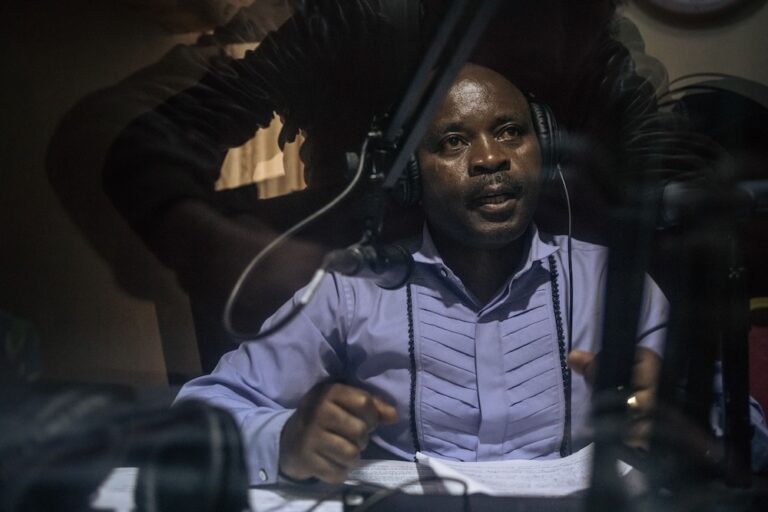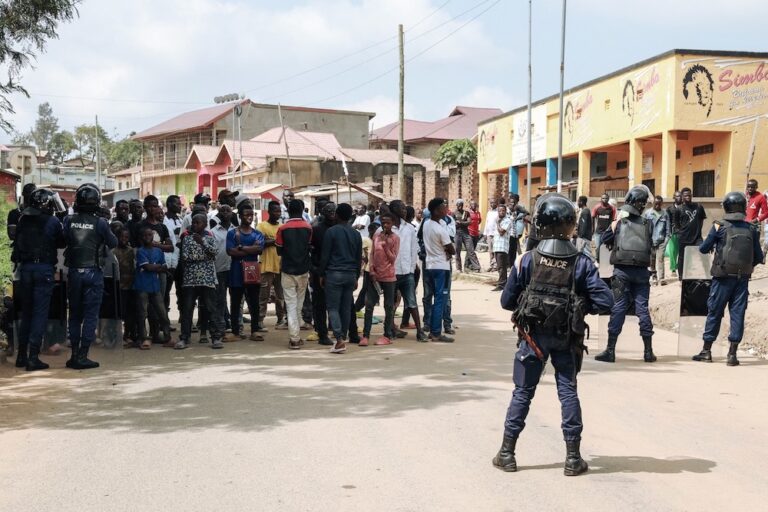(RSF/IFEX) – Reporters Without Borders has called for a concerted effort to establish who was responsible for the death threats made against the staff of Journalist en Danger (JED), its partner organisation in Democratic Republic of Congo (DRC), the day after JED issued its annual report on 9 December 2005. In particular, Reporters Without Borders […]
(RSF/IFEX) – Reporters Without Borders has called for a concerted effort to establish who was responsible for the death threats made against the staff of Journalist en Danger (JED), its partner organisation in Democratic Republic of Congo (DRC), the day after JED issued its annual report on 9 December 2005.
In particular, Reporters Without Borders urged the Vodacom telephone company to identify the person whose telephone was used to send the threatening SMS text message to four senior members of JED, and to pass this information to the European Union delegation in Kinshasa.
“This is not the first time that JED staff have been the target of death threats, yet no serious investigation has ever been carried out to identify those responsible,” the press freedom organisation said.
“This latest, ominous threat must be taken seriously, coming as it does just weeks after the horrible murder of journalist Franck Ngyke and his wife, who were very close to the JED staff,” Reporters Without Borders continued. “We call on the EU, which is very much involved in the DRC’s transition process, to take our partner organisation under its protection and to do everything possible to ensure that its members can resume a normal existence.”
JED President Donat M’Baya Tshimanga, Secretary-General Tshivis Tshivuadi, Central Africa Desk Officer Charles Mushizi and DRC Desk Officer Esther Banakayi all received an identical message on their mobile phones between 4:10 p.m. and 4:30 p.m. (local time) on 10 December. The message read: “JED, who do you think you are? You are going to disappear one by one if you do not publicly announce an end to your activities. You have 10 days. After that, we will act, and even your families could be targets.”
The message was sent from (243) 811 449 003, a Vodacom number. Since the message was sent, no one has ever picked up when the number is dialed. When JED contacted Vodacom, the company said the number is one of “the latest series of numbers to have been assigned” but it “is not identified.”
The day before the threatening messages, JED issued its eighth annual report on press freedom in Central Africa, which received a great deal of coverage in the national and international press. It drew the international community’s attention to the deteriorating situation in the DRC where, it said, there was a 63 per cent increase in press freedom violations in the past year. It also called for an independent commission to investigate the 3 November murders of Ngyke and his wife in Kinshasa, which according to the police were unrelated to Ngyke’s work as a journalist.


